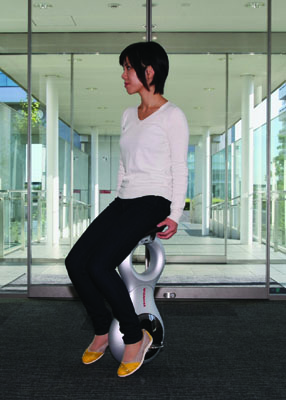This article is more than 1 year old
Perhaps middle-aged blokes SHOULDN'T try 34-hour-long road trips
Not if it's just to dodge some taxes, anyway ...
Oh yes, automation DISPLACES labour
Which neatly brings us to the Luddite fallacy, that if we automate then what are those toll collectors going to do for a living? One, wrong, answer is that they will end up in the factories making the toll collection machines.
But that's simply not how productivity is raised at all: if you think about it, it cannot be. Workers displaced by some new technology are not absorbed by that new tech itself: if this were so we would never have increases in labour productivity at all. And as economist Paul Krugman points out, productivity isn't everything but in the long run it's pretty much everything. Average productivity is what determines how the average person lives: so, we'd like it to rise over time.
Leave tolls aside and think about farming.
The invention of the tractor and associated mechanisation completely change labour demand there. From, even in the UK, 40 per cent or so of the population down to today's 2 per cent or so. But we've not got 38 per cent of the workforce over making tractors and other farm machinery. If we did we wouldn't actually have had an increase in labour productivity at all.
We would be still be having 40 per cent of the population working to provide our food, just as we had before. We'd have changed the method of food production, sure, but not labour productivity and thus not living standards.
What actually happens is that as one job or industry becomes mechanised then people go off and do something else. Given that we assume, right at the start, that there's an infinite number of human desires and wants to be satisfied there's plenty for people to go off and do.

Weeeeeeeeeeee!
One interesting little proof of this is that the French unemployment rate is considerably below the Spanish one: even though the French have automated that vital toll collection function.
That is, automation displaces labour, oh yes, it most certainly does. It also reduces the demand for labour among the things that we already do. It isn't true that the process of automation provides the jobs for those displaced. Productivity wouldn't rise if that were so. But it also frees people up to go off and satisfy some other human desire, a desire that was previously being entirely unmet.
For example, if we still had 40 per cent of the population farming the food for the UK would we really have enough people around to be able to put 10 per cent of all working people into the NHS? Probably not really. So we could (in a very rough and ready fashion) say that the automation of farming allowed us to have a health care system.
Which needs and desires are going to be satisfied by those liberated by the coming wave of robotic automation, I've no idea: and more importantly, nor does anyone else. Looking at the current growth in the economy it could be staffing nail bars: but if more manicures makes some part of humanity happier then why the hell not?
The point, in the end, being that if it is true that human desires are infinite then labour will move over to satisfy one or more of them when displaced from doing so to an earlier one. And if we ever do reach the point where all human desires are satisfied then what the hell's wrong with that? ®
Bootnote
*Angry because it's actually the EU that insists on roads that were built with EU subventions being those toll roads. Given that the UK is a net payer into EU funds, as are many Northern EU countries, it's therefore a tad galling to both have paid for the road through taxation and also then get charged to use it.
Can't help thinking that a few “Northerner's Freebies” would improve attitudes. Some bod with a Northern EU numberplate arrives at a toll station and instead of being charged is given a little ticket reading “You've already paid for this road once, enjoy!”.
Hmm, maybe?
